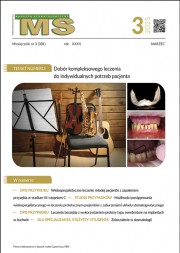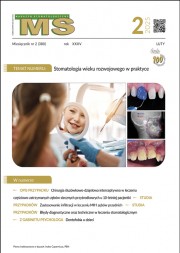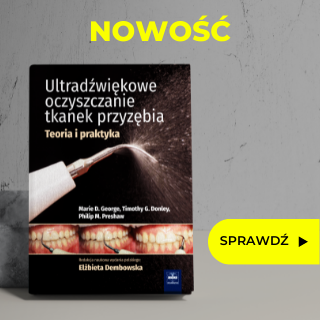Read the text carefully. Pay attention to words in the bold print
Pregnant women are at higher risk for developing gum disease. This group of mothers have a higher instance of preterm birth which may endanger their infants’ well-being due to a low birth weight.
Pregnancy gingivitis is a common form of gum disease known to develop in almost half of all pregnant women likely due to the change in hormones. If it is controlled, pregnancy gingivitis generally ends shortly after the birth of the child. Patients should remember though, that pregnancy gingivitis should be monitored by a dentistperiodically in order to prevent progressing into more serious periodontitis, an advanced and irreversible form of gum disease that has been linked with preterm birth. Pregnant mothers with periodontal disease are seven times more likely to go into preterm labor. Prostaglandin, a chemical found in oral bacteria, may induce labor. And high levels of prostaglandin has been found in the mouths of women with severe cases of periodontal disease.
What should the dentists and pregnant women consider in order to prevent gum disease? The key to success is proper oral health education. Counseling and early intervention by dentists and other healthcare professionals provide expectant mothers with the tools and resources necessary to understand the importance of oral health care during pregnancy.
Oral hygiene is crucial, too. Removing the bacterial plaque, which researchers have connected to preterm birth and low birth-weight babies, is essential. Using the correct brushing and flossing methods greatly increase the amount of plaque that is removed from the teeth and gums. Choice of fluoridated toothpaste during pregnancy is recommended, and the use of an over-the-counter alcohol-free fluoride rinse to help reduce the amount of plaque in the mouth is strongly advised.
Improper diet rich in sugary foods and snacks is a factor for developing gum diseases that is why educating expectant mothers about proper diet and nutrition during pregnancy will limit unnecessary sugar intake and in turn, prevent plaque build up.
Expectant mothers are encouraged also to have existing tooth decay treated during their pregnancy, which is a completely safe practice during pregnancy. Restoring decayed teeth will help achieve oral health by removing the bacteria associated with tooth decay.
Also women who are thinking about becoming pregnant may want to consider their oral health before becoming pregnant. Both pregnant and trying for a baby womenshould remember about regular dental check-ups.
GLOSSARY
associated – związany, powiązany
to be at higher risk – mieć wyższe ryzyko
to be linked – być związany, powiązany
check-up – badanie
counseling – doradztwo
crucial – istotny
to endanger – zagrażać, narazić
expectant mother – ciężarna
factor – czynnik
improper – nieprawidłowy, niewłaściwy
induce labour – wywoływać poród
in turn – z kolei, w następstwie
instance – przypadek
irreversible – nieodwracalny
low birth weight – niska waga urodzeniowa
to monitor – kontrolować, monitorować
periodically – cyklicznie, periodycznie
preterm birth – przedwczesny poród
to progress – postępować, rozwijać się
prostaglandin – prostaglandyna
proper – właściwy
resource – zasób
tool – narzędzie
trying for a baby women – kobiety starające się zajść w ciążę/ planujące ciążę
Substitute underlined word with a synonym or a word with similar meaning from the GLOSSARY section
1. Women who want to become pregnant should treat all decayed teeth before their pregnancy.
2. Regular dental visits are recommended in pregnant women.
3. Good and well- balanced diet is necessary in pregnancy not only to ensure proper development of the child but also it is important for maintaining good dental health.
4. Proper oral health advising is the first step in preventing gum disease in pregnant women.
5. Some women have premature labour because of periodontitis.
6. Women are more likely to develop gum disease during pregnancy.
7. Prostaglandin is known to initiate labour.
8. If expecting women do not follow proper oral hygiene, gingivitis may develop into more advanced condition.
Connotations. Choose word from the table which may be connected with all words from the bracket
| remove | to be likely to | proper | to be at risk for |
| irreversible | to consider | to induce | to endanger |
e.g. (plaque, stains, dentures): to remove
1. (diet, nutrition, oral health): _________________
2. (change, consequence): ____________________
3. (oral cancer, diabetes, hypertension): _________________
4. (develop oral cancer, suffer from diabetes):________________
5. (labour, pain, labour pains): _________________
6. (well-being, development, progress): __________________
7. (problem, decision, way of treatment): __________________
Match questions with answers
DENTIST’S QUESTIONS:
1. When are you due?
2. Do you have any unpleasant symptoms connected with your state?
3. What trimester are you in?
4. How frequently do you have your dental check-ups?
5. Do you have any concerns at this point?
6. Can you please describe your daily oral hygiene?
7. How long have you had this bleeding from your gums for?
8. Since when have you been using antihypertensive drugs?
PREGNANT WOMAN’S ANSWERS:
A. Oh yes. I have morning sickness. Every day I vomit and feel nauseous.
B. Yes, will I be able to use any painkillers if the pain is unbearable?
C. For about one week.
D. 10th February 2012.
E. I brush my teeth 3 times daily. I use mouth rinse and dental floss. Between my meals I chew sugar-free gum.
F. Since the second trimester.
G. It’s my fifth month of pregnancy. So it’s the second one.
H. I’m terrified of dentists, so I generally avoid the check-ups.
| 1. | 2. | 3. | 4. | 5. | 6. | 7. |
8. |















